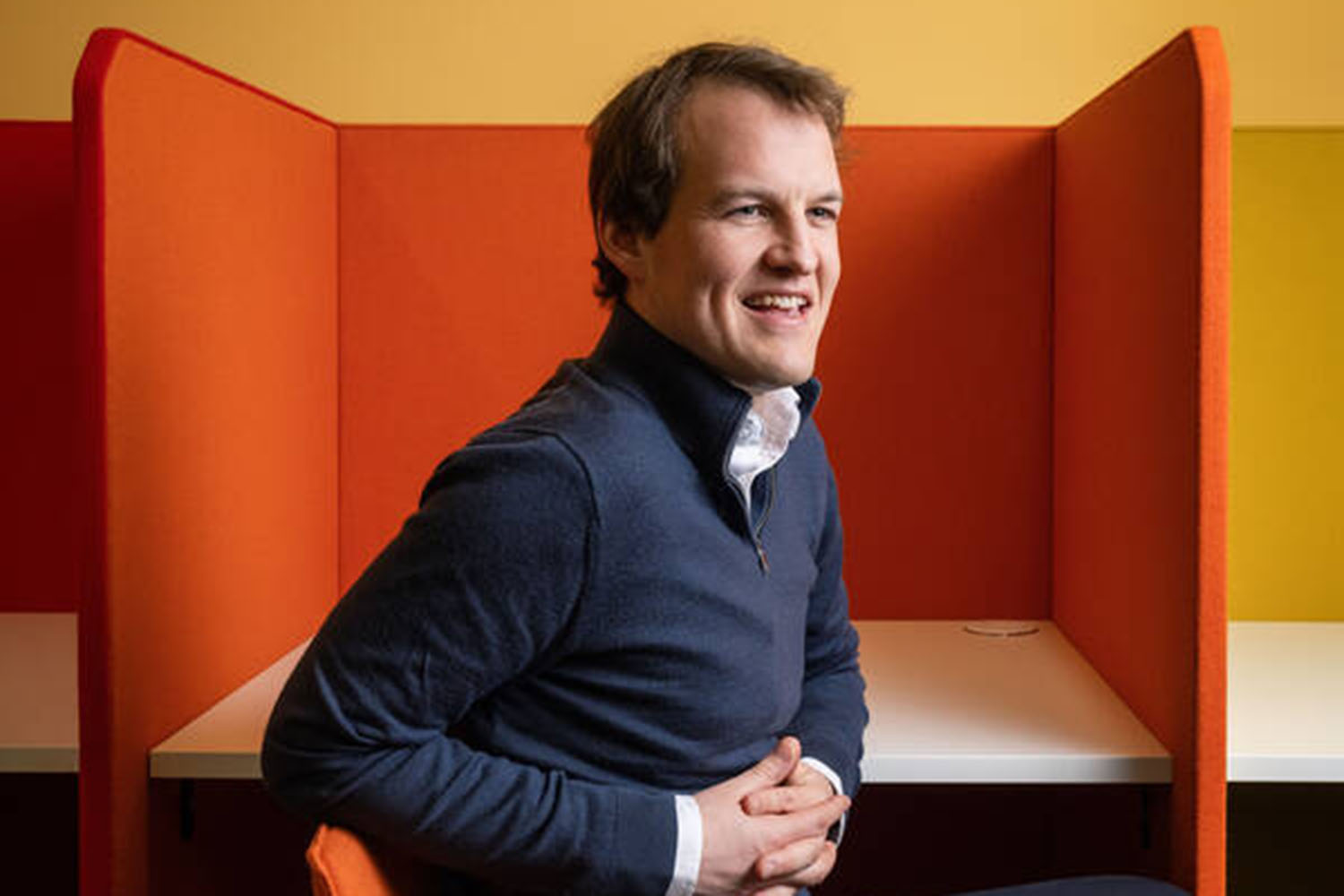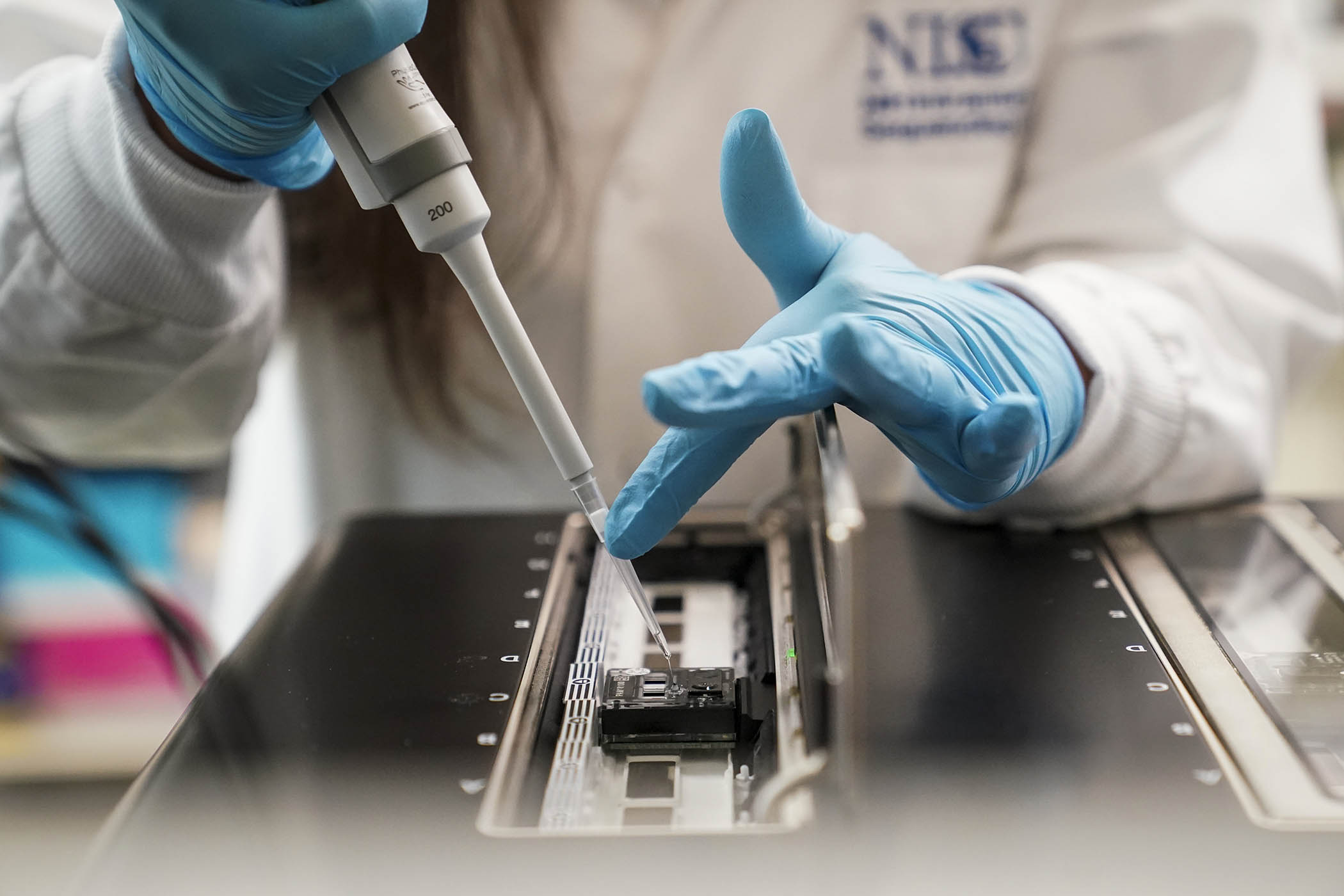In the summer of 2022, the US billionaire investor Reid Hoffman and the UK venture capitalist Matt Clifford were wrapping up a board meeting for Clifford’s investment company, Entrepreneurs First (EF). As the other executives trickled out of the room, Hoffman turned to Clifford and asked: “Do you wanna see something cool?”
Then Hoffman, who at the time was a board member at chatbot maker OpenAI, opened his laptop and revealed a demo of ChatGPT. Clifford asked the AI chatbot to write him a dialogue between God and the pope about the implications of AI for the Roman Catholic church. The response – a coherent script, rendered instantly – astounded him.
It was an experience that would in some way be mirrored by millions of people across the globe a few months later, in November 2022, when ChatGPT was released to the public.
Clifford, who had just been appointed chair of the government’s Advanced Research and Invention Agency (Aria) and wrote a weekly newsletter about the geopolitics of AI, sensed that the world was about to be transformed by this technology. His first thought was to text his wife, with whom he has two young children: “What are our kids going to do?” His second thought was to ask Hoffman if he’d shown this tool to any governments. He hadn’t – yet.
Through his contacts at Aria, Clifford brokered a meeting between soon-to-be prime minister Rishi Sunak and Sam Altman, OpenAI’s co-founder. Despite being impressed by the early demo, Sunak did not immediately understand the implications of the technology that he had just witnessed, according to several sources, and was caught off-guard when ChatGPT kickstarted a global conversation about the power of AI to transform economies.
In the scramble to understand how the UK could make its mark in AI, the government leaned on Clifford – a confident and eloquent ex-McKinsey consultant with degrees from Cambridge and MIT and deep ties to Silicon Valley.
Clifford is an unusual figure in British public life. Other advisers to the Conservative government were let go when Labour came into power, but Clifford has only become more influential. In January, the government published his AI opportunities action plan, a set of 50 proposed policies that Keir Starmer said would “mainline AI into the veins” of the UK.
Civil servants working on public policy tend to give up their private sector interests; Clifford has about 50 financial interests and eight outside occupations, as well as holding stakes in a further 449 companies through his investment company. Many are bound to be affected by the policies he shapes.
Related articles:
And, while most other scientific advisers work on committees and panels, Clifford has almost single-handedly shaped Downing Street’s thinking on artificial intelligence. If his thesis is correct – that AI is the most powerful technology that exists or has ever existed, that it will make the world unrecognisable by the time his children are adults – then this role arguably makes him the most important person in the country.
Clifford grew up in Bradford, where “if you were a teenager and you wanted to make money, you basically could work in [the pastry shop] Greggs”, he said on the 20VC podcast. “And I really didn’t want to work in Greggs.” At 13, he started a business fixing computers for his peers and said the realisation that you could just “do stuff” without asking for permission was a formative experience.
Newsletters
Choose the newsletters you want to receive
View more
For information about how The Observer protects your data, read our Privacy Policy
His next venture came more than a decade later. In 2011, Clifford founded the startup accelerator EF with Alice Bentinck, a fellow McKinsey consultant. The timing was good. The following year saw a wave of AI breakthroughs that inspired EF’s cohort of ambitious entrepreneurs to pitch companies built on cutting-edge machine learning.
It was the runaway success of Tractable, a 2014 computer vision startup that gave Clifford the capital – and the continued ambition – to invest heavily in AI, a corner of the market that he felt was undervalued. It soon became his principal focus.
But it was a side hustle that led to his advisory roles in government. In 2018, Clifford started a newsletter about AI and tech policy. The blog caught the eye of a junior civil servant called Ben Steyn, who in 2022 encouraged Clifford to apply for a role as chair of Aria, a government R&D agency dreamed up by the former No 10 chief adviser Dominic Cummings and inspired by the US Defense Advanced Research Projects Agency, or Darpa. That was his first step towards becoming what Politico called an “AI diplomat” .
In 2023, he was tapped on the shoulder to establish the UK’s AI Security Institute and, later, the “AI safety summit”, a key gathering of global superpowers in Bletchley Park. Under a new Labour government in search of growth, he was asked to write an AI action plan; the government accepted 48 of its recommendations and appointed Clifford Starmer’s adviser on AI opportunities that month.
He was offered a position as a full-time adviser, but didn’t want to leave his role at EF, where he remains chair. Instead, he’s working just a day a week – unpaid – to implement the plan. Sources say that, at the least, it’s a very long day.
For the first six months of Starmer’s government, AI was not high on Labour’s agenda. But a dinner between the prime minister and the entrepreneurs Demis Hassabis and former Google chief executive Eric Schmidt in October 2024, as well as a number of personnel changes at No 10 – including the appointment of Morgan McSweeney as Downing Street chief of staff – convinced Starmer that AI could be a significant driver of economic growth. Sources say Starmer and other key aides, including the ministers for science and technology, were now “bought in”.
‘The public is ready for a radical modernisation agenda of the state'
‘The public is ready for a radical modernisation agenda of the state'
Benedict Macon-Cooney
Benedict Macon-Cooney, chief policy strategist at the Tony Blair Institute, praises Clifford’s ability to work across both Labour and Conservative agendas, and welcomes his action plan.
“He’s an extremely strong advocate for progress and modernisation, at a time in the UK where we’ve had over a decade of [a] basically stagnant economy, low productivity [and] quite dormant economic sectors across most parts of the economy”.
But several people – including some who praised Clifford’s plan – say the government is not using a wide enough pool of experts to shape what one called “the most fundamental general purpose technology since electricity”.
Multiple sources say Clifford is Starmer’s sole trusted external adviser on AI. “ I would definitely say that, having worked in policy for over 10 years, I find this government to be less consultative than any I’ve worked with,” says Rachel Coldicutt, a tech policy adviser.
Others – many of whom expressed concern about speaking on record due to Clifford’s influence – said they feared the UK was rushing through a broad-brush plan that had, as one senior technologist put it, “lost contact with its own strengths in AI”, including academia.
A sticking point in the proposals, however, is the future of copyright. Clifford supports the loosening of UK intellectual property laws to allow tech companies to scrape data to build AI models. He believes creatives who don’t want their content trawled by AI should be able to opt out.
In December 2024, the government published a series of “opt-out copyright proposals”. Though Clifford was not directly involved in drafting them, he drew scrutiny from campaigners who felt the government was giving up the rights of writers and artists to the US tech companies.
The film director Beeban Kidron said in The Guardian: “It is for Peter Kyle [the technology secretary] and the chancellor, Rachel Reeves, to explain why they are taking advice exclusively from tech sector people such as Matt Clifford.”
Others note that it would be nearly impossible to find suitable AI experts without any external interests. Clifford divested from a perceived conflict before joining the government. He has also agreed not to invest in further AI companies through EF, though he benefits indirectly from existing investments.
One source said Clifford sees himself as a hard-working civil servant who takes advice from multiple people within the industry and did not write the government’s strategy “in a vacuum”.
“[Clifford] is largely a person with significant capabilities and certainly competence in their own areas, but with an utter lack of awareness of what they don’t know,” said a former member of the UK’s AI Council, which advised the previous government on artificial intelligence.
The source said voices such as Clifford’s are “critical”, but should be part of a breadth of advisers. Two other sources said previous governments’ efforts to collect policy advice at scale, such as the AI Council, had failed when they neglected to foresee the advent of large language models such as ChatGPT and their potential impact on the economy.
Macon-Cooney says Elon Musk’s “department of government efficiency” in the US proves the public is “ ready for a radical modernisation agenda of the state”.
Clifford may be just that. It is up to the government to decide if he should do it alone.



